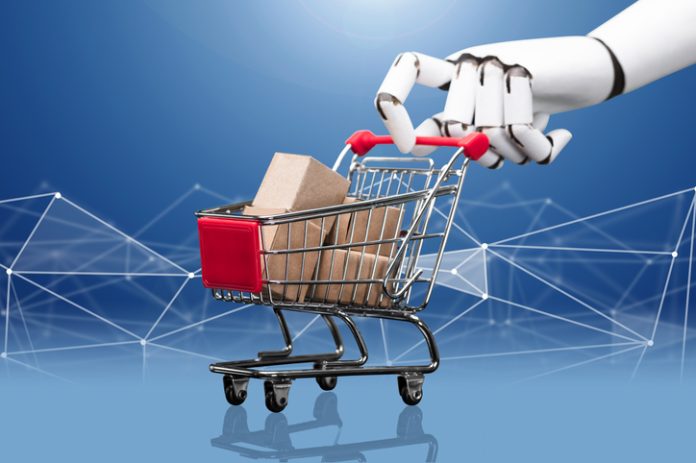There are many applications, services, and programs based on AI technologies, but not all of them are equally useful for online stores. In addition, their implementation is quite expensive.
Before getting involved with newfangled technologies, let’s explore how exactly artificial intelligence can accelerate the development of an online store, increase conversion rates, and improve customer service.
Where and why should you use AI for e-commerce?
Artificial intelligence works on large amounts of data. That is why it is important to ensure high data quality before implementing AI. To do this, companies need to unify departments – sales, marketing, advertising, customer service, and even logistics – into a single structure. Data quality becomes the number one priority.
Here’s a short list of the benefits you can expect after implementing Artificial Intelligence eСommerce business.
- Using conversational commerce to intelligently help customers. Thanks to AI, you can improve the search logic on your website and create a chatbot that welcomes visitors anywhere, anytime.
- The ability to make personalized offers. AI allows you to track all customer touchpoints. It saves the products they viewed and the prices they reacted to. You’ll be able to determine exactly what offers each customer needs.
- Stop guessing the customer journey and start predicting it. Make the journey map as clear as possible with artificial intelligence-based recommendations. Having the ability to predict customer behavior gives you a competitive advantage with flexible margins and the ability to measure the effectiveness of your marketing plan.
- Reduce human error in supply chain planning. With artificial intelligence, make your inventory and goods available at all times in the volume your customers need. This optimization is possible in both online and offline stores. It will provide you with accurate real-time inventory information.
- Anticipate problems. Get alerts on various anomalies, suspicious transactions, vendor actions, fraud, and missing goods. You’ll have time to intervene and find out what’s going on.
- Promote offline points of sale. If your AI collects information from sensors (like a video camera), you’ll have the magical ability to track your customers inside physical stores. You’ll be able to know where visitors go, where they stop, and whether they’re new or repeat customers. You can also engage shoppers by making the best online offers available in regular stores as well.
Examples of effective use of AI in e-commerce
Improving personalized targeting with predictive analytics
Sales targeting with AI is one of the most popular applications of predictive analytics. It is used to automatically identify customers who want to make a purchase right now and send them personalized offers.
In technical terms, this process is about finding people among your target audience who share the same set of characteristics as a typical group of “ready-to-buy” loyal customers.
This is an impossible task for humans, but one that artificial intelligence algorithms can accomplish.
You can create many lists of automatic reactions for certain types of customers:
- lost customers;
- seasonal customers;
- customers who have left a review;
- wholesale customers.
Experimenting with artificial intelligence will help increase sales, minimize closing time, and automate the entire process.
AI bots for a large flow of customers
You need a bot to handle a large flow of leads after successful advertising campaigns. AI bots are most useful when they can respond correctly and timely to any communication from your potential customers.
You have complete control over how your bots communicate with leads, so be careful. For customers, talking to an artificial intelligence is tantamount to talking to a company representative, so it can affect your credibility.
Your bot should be able to:
- Establish initial contact with customers;
- answer frequently asked questions based on simple scripts;
- schedule an appointment or a day for a second contact if the customer can’t respond immediately.
Even the simplest bots with artificial intelligence are better than nothing. They increase conversion rates. Virtual assistants are capable of answering questions via email, targeting trigger words, as well as responding in a pop-up window on your website or in some popular messenger.
AI consulting services play a pivotal role in shaping the future of e-commerce by leveraging artificial intelligence technologies to optimize customer experiences, streamline operations, and drive business growth in the ever-evolving digital landscape.
AI-powered image search and recognition
Visual search can provide an exclusive customer experience and allows for many useful experiments. If you’ve ever used Pinterest Lens (Pinterest Lens), you know what we’re talking about. This service is also powered by artificial intelligence.
Retailers like Asos and Target use AI technology for virtual fitting rooms. Upload a photo and select the product category you are looking for, and an algorithm will give you the most suitable options.
With visual search, image recognition, and augmented reality, you can develop thousands of advertising campaigns. All this will make your brand outstanding and memorable.






























